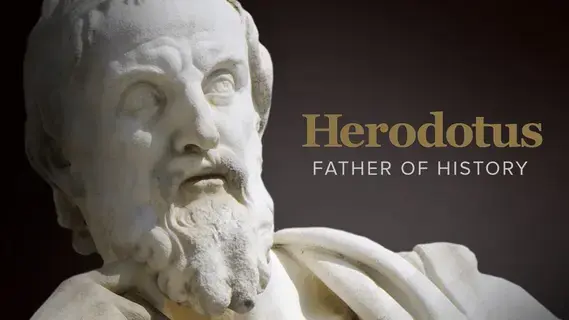Herodotus: The Father of History
Self-paced course
Price
$24.99
Rating
Reviews (7)
Help other learners make their choice
In depth description of his life and times. Interesting for its comparison to Thucydides , and consideration of the varying views of modern historians on his veracity.
0
I really like Elizabeth. She is clear and concise. The information was clear, interesting and overall was quite good. Have her other courses and have enjoyed them all. Combined they tell quite a story. She deserves kleos. Robert
0
Dr. Vandiver reduced a thousand-page history book into a few, very digestible highlights without reducing history itself.
0
This is my second time through Vandiver's 2002 course on Herodotus. The first helped bring out the complex details of early battles that are not covered in many courses. The revisit was spent trying to figure out how to decipher the Herodotus’ literary scope and so will skip of the many interesting battle descriptions. Vandiver’s diction, organization, and command of the “classroom” are marvelous. Herodotus was the first to not only DESCRIBE events, but to attempt to find the reasons for their occurrence. Vandiver spends lecture 2 (L2) with a detailed analysis of Herodotus’ “Histories” critical first sentence that she will refer back to through the course. "To inquire...into things that have come about from human beings" particularly “great and astonishing works or deeds"…to find explanations for the causes of events”. Additionally, L9 shows that Herodotus casts history as personal encounters rather than political or economic events. This differentiates Herodotus’ approach from that of his student Thucydides (who uses techniques closer to today’s). As L24 suggests, Herodotus wanted to memorialize great deeds, while Thucydides was more into annotating recent events”. Fascinating aspects of ancient life are found in L5 where the 6th century BCE “Ioanian Enlightenment" vastly predates the 18th century European Enlightenment. Ioanian Pre-Socratics were more scientific than philosophic, Anaximander wrote of a “kind of evolutionary theory", and the term cosmos (meaning “arranged") was proposed because the physical universe was no longer seen as random! Of course, there are some ideas we’d see as “crazy". For example, Herodotus thought that the Nile’s flood occurs when “the sun is driven out of its course” by Libyan floods (L8). But Herodotus also correctly felt that the Nile Delta was originally a gulf by his observations of seashells and salt in the hills. One thing troubling to some reviewers is Herodotus’ "three generation reach back” of oral history. But face it, these people were not bombarded with extraneous information like we are today. Their elders demanded childhood memorization of items considered critical to the flow of generations (L9). Herodotus wrote when literacy was just gaining traction. L20 reminds us that modern historians try to add human-interest anecdotes to flesh out facts but that “In oral culture, the anecdotes are the facts.” L10 is an interesting description of the life Croesus’: from a morality play involving King Candaules’ wife, to Solon’s insight that a life cannot be judged as “happy" until it is over, to his observation Eastern opulence that doesn't necessarily trump (relative Greek) poverty in creating a “fortunate” city or person. L21 is particularly worth listening to (and might better have been part of the Course Introduction), as it shows that Herodotus' concept of the etymology of the term "god" is to “place, put or ordain". The gods, therefore set things in order and so “fate", not free will (a concept the ancients did not have) constrains human plans. FINAL COMMENT: Despite things that seem “fantastic” to us, it is useful that L14 describes archaeological confirmation of many of his "impossible" accounts.
0
First rate exposition of Herodotus and the Histories.
0
As a boy, I was privileged to visit Persepolis and Athens and hear many accounts of the Greek/Persian wars from my father -- a civil engineer with an enthusiastic interest in classical history. That background led me to finally read Herodotus' Histories at the start of my retirement many years later. The book was something of a slog, and I had always thought it would be hugely beneficial to one day take a course that covered the wars with a teacher that had done the hard work of doing a close reading of Herodotus and could provide detailed context for the text. Dr. Vandiver's course here from The Learning Channel fills that bill wonderfully. If you have an interest classical history and decide to take up reading The Histories on your own, I couldn't recommend more listening to these lectures: they will increase your appreciation of the many facets of the text at least tenfold -- and help deepen your appreciation of the beginnings of our Western historical tradition.
0
Wow, what a great lecturer. Prof. Vandiver's explanation of The Histories by Herodotus is authoritative, insightful, and entertaining.
0
12 Hours
Free trial
English
Beginner









